Filter by
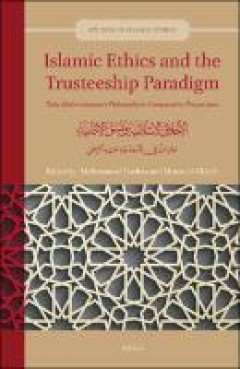
Islamic ethics and the trusteeship paradigm : Taha Abderrahmane's philosophy …
Islamic Ethics and the Trusteeship Paradigm explores the emerging ethical theory examines the development of this modern Islamic theory of the trusteeship paradigm as developed by the Moroccan philosopher Taha Abderrahmane (b. 1944). The volume, with contributions in English and Arabic, examines the development of this modern Islamic theory of ethics and how it permeates various disciplines: ph…
- Edition
- -
- ISBN/ISSN
- 9789004438354
- Collation
- XVII, 364 p.
- Series Title
- Studies in Islamic Ethics, 3
- Call Number
- 297.5092 ISL i
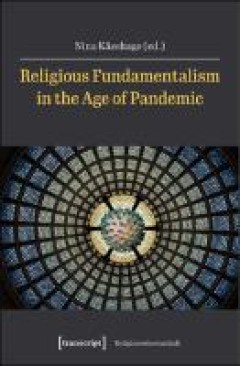
Religious fundamentalism in the age of pandemic
The multidisciplinary anthology Religious Fundamentalism in the Age of Pandemic provides deep insights concerning the current impact of Covid-19 on various religious groups and believers around the world. Based on contributions of well-known scholars in the field of Religious Fundamentalism, the contributors offer about a window into the origins of religious fundamentalism and the development o…
- Edition
- -
- ISBN/ISSN
- 9783839454855
- Collation
- 276 p.
- Series Title
- Religionswissenschaft, 21
- Call Number
- 200 REL r
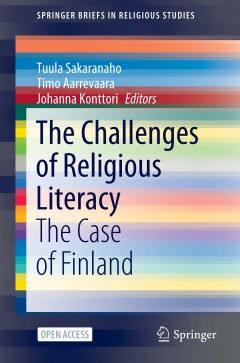
The challenges of religious literacy : the case of Finland
This open access book presents religious literacy as the main explanatory factor when dealing with certain ethnic groups that attract stereotypes which gloss over other personal factors such as age, class, gender and cultural differences. It discusses freedom of religion, and the Christian revival movement. It examines religious literacy and religious diversity in multi-faith schools. It looks …
- Edition
- -
- ISBN/ISSN
- 9783030475765
- Collation
- xi, 84p. : ill.
- Series Title
- -
- Call Number
- 200.94897 CHA c
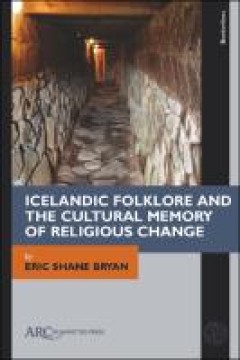
Icelandic folklore and the cultural memory of religious change
This book attempts to understand the origins and development of religious belief in Iceland and greater Scandinavia through the lenses of five carefully selected Icelandic folktales collected in Iceland during the nineteenth century. Each of these five stories has a story of its own: a historical and cultural context, a literary legacy, influences from beliefs of all kinds (orthodox and heterod…
- Edition
- -
- ISBN/ISSN
- 9781641893763
- Collation
- VII, 162 p.
- Series Title
- Borderlines,
- Call Number
- 398 BRY i
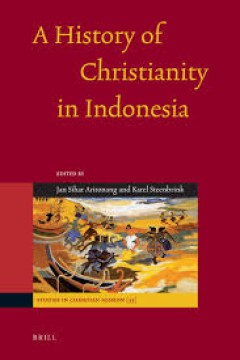
A History of Christianity in Indonesia
Indonesia is the home of the largest single Muslim community of the world. Its Christian community, about 10% of the population, has until now received no overall description in English. Through cooperation of 26 Indonesian and European scholars, Protestants and Catholics, a broad and balanced picture is given of its 24 million Christians. This book sketches the growth of Christianity during th…
- Edition
- -
- ISBN/ISSN
- 9789004170261
- Collation
- xvi, 1004 p.
- Series Title
- -
- Call Number
- 275.98 HIS a
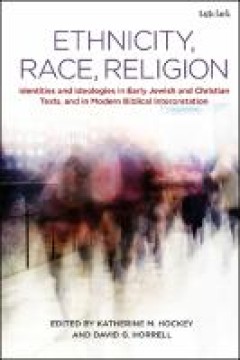
Ethnicity, race, religion : identities and ideologies in early jewish and chr…
Religion, ethnicity and race are facets of identity that have become increasingly contested. The modern discipline of biblical studies developed in the context of Western Europe, concurrent with the emergence of various racial and imperial ideologies. The essays in this volume deal both with historical facets of ethnicity and race in antiquity, in particular in relation to the identities of Jew…
- Edition
- -
- ISBN/ISSN
- 9780567677310
- Collation
- IX, 241 p.
- Series Title
- -
- Call Number
- 270.1089 ETH e
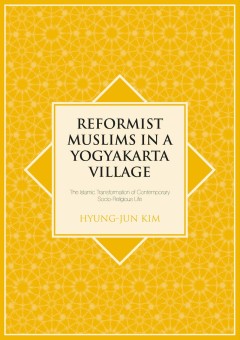
Reformist muslims in a Yogyakarta Village : the Islamic transformation of con…
This study examines the religious life of reformist Muslims in a Yogyakarta village. The foci of this discussion are on Muslim villagers’ construction, with the help of the reformist paradigm, of the image of the ‘good Muslim’ and ‘Muslim-ness’, on their efforts to incorporate an (reformist) Islamic framework to question taken-for-granted practices and ideas, on the position of tradit…
- Edition
- -
- ISBN/ISSN
- 9781920942359
- Collation
- XVIII, 295 p.
- Series Title
- -
- Call Number
- 297.448 KIM r
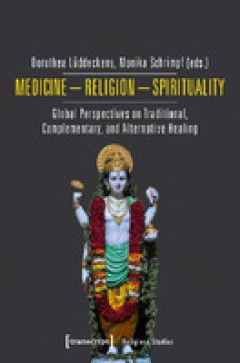
Medicine – religion – spirituality : global perspectives on traditional, …
In modern societies the functional differentiation of medicine and religion is the predominant paradigm. Contemporary therapeutic practices and concepts in healing systems, such as Transpersonal Psychology, Ayurveda, as well as Buddhist and Anthroposophic medicine, however, are shaped by medical as well as religious or spiritual elements. This book investigates configurations of the entanglemen…
- Edition
- -
- ISBN/ISSN
- 9783839445822
- Collation
- 274 p.
- Series Title
- Religionswissenschaft, 13
- Call Number
- 201.661 MED m
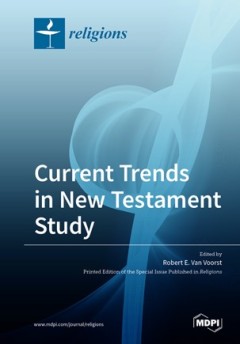
Current trends in new testament study
This book focuses on seven of the most important formal methods used to interpret the New Testament today. Several of the chapters also touch on Old Testament/Hebrew Bible interpretation. In line with the multiplicity of methods for interpretation of texts in the humanities in general, New Testament study has never before seen so many different methods. This situation poses both opportunities a…
- Edition
- -
- ISBN/ISSN
- 9783039280278
- Collation
- VII, 147 p.
- Series Title
- -
- Call Number
- 200 CUR c
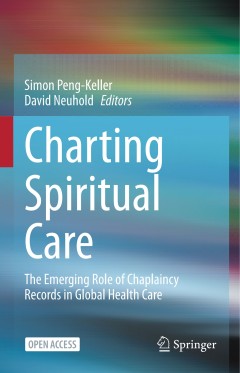
Charting spiritual care : the emerging role of chaplaincy records in global h…
This open access volume is the first academic book on the controversial issue of including spiritual care in integrated electronic medical records (EMR). Based on an international study group comprising researchers from Europe (The Netherlands, Belgium and Switzerland), the United States, Canada, and Australia, this edited collection provides an overview of different charting practices and expe…
- Edition
- -
- ISBN/ISSN
- 9783030470708
- Collation
- xv, 232p. : ill.
- Series Title
- -
- Call Number
- 259.4 CHA c
 Computer Science, Information & General Works
Computer Science, Information & General Works  Philosophy & Psychology
Philosophy & Psychology  Religion
Religion  Social Sciences
Social Sciences  Language
Language  Pure Science
Pure Science  Applied Sciences
Applied Sciences  Art & Recreation
Art & Recreation  Literature
Literature  History & Geography
History & Geography